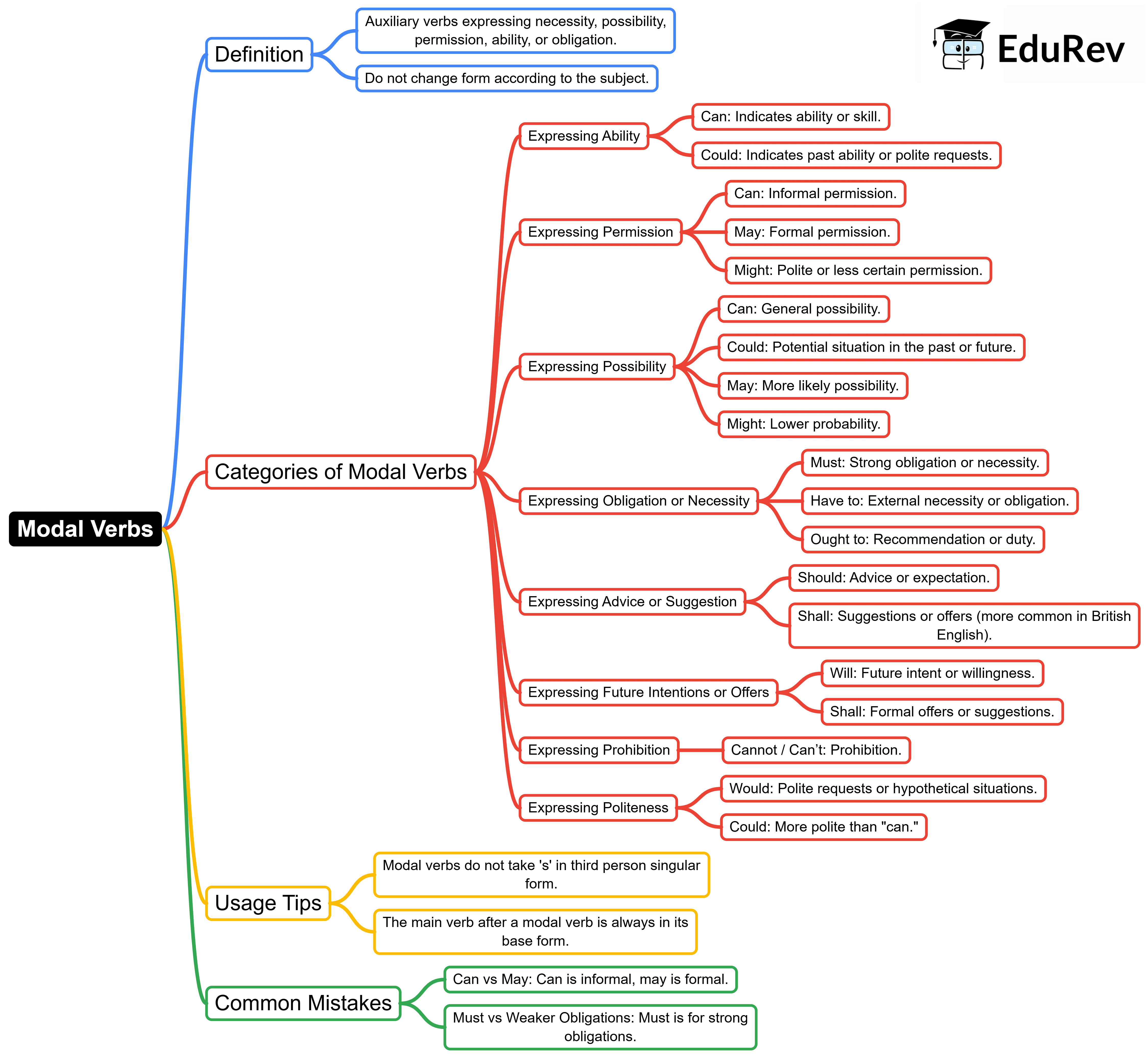CAT Exam > CAT Notes > Verbal Ability & Reading Comprehension (VARC) > Mind Map: Modal Verbs
Mind Map: Modal Verbs | Verbal Ability & Reading Comprehension (VARC) - CAT PDF Download

The document Mind Map: Modal Verbs | Verbal Ability & Reading Comprehension (VARC) - CAT is a part of the CAT Course Verbal Ability & Reading Comprehension (VARC).
All you need of CAT at this link: CAT
|
112 videos|451 docs|90 tests
|
FAQs on Mind Map: Modal Verbs - Verbal Ability & Reading Comprehension (VARC) - CAT
| 1. What are modal verbs and how are they used in English grammar? |  |
Ans. Modal verbs are auxiliary verbs that express necessity, ability, permission, or possibility. They include verbs such as can, could, may, might, must, shall, should, will, and would. In sentences, they are used alongside the base form of a main verb to convey different meanings. For example, "She can swim" indicates ability, while "You must study" expresses necessity.
| 2. How do modal verbs differ from regular verbs? |  |
Ans. Modal verbs differ from regular verbs in that they do not take on different forms to indicate tense. For instance, the modal verb "can" remains the same regardless of the subject or tense, while regular verbs change form (e.g., "walk" becomes "walked" in the past tense). Additionally, modal verbs do not require 'to' before them, as in "I can go" rather than "I can to go."
| 3. Can modal verbs be used in negative sentences? |  |
Ans. Yes, modal verbs can be used in negative sentences. The negative form is typically created by adding "not" after the modal verb. For example, "She cannot (can't) attend the meeting" indicates that she is not allowed or able to attend. The contraction forms, such as "won't" for "will not" and "shouldn't" for "should not," are also commonly used.
| 4. What is the significance of using modal verbs in polite requests? |  |
Ans. Modal verbs play a crucial role in making polite requests or suggestions. For instance, using "could" or "would" softens the request, making it more courteous. Instead of saying, "Give me the book," one might say, "Could you please give me the book?" This approach is particularly important in formal settings, such as during interviews or professional communications.
| 5. Are there any common mistakes to avoid when using modal verbs? |  |
Ans. Yes, common mistakes include using modal verbs incorrectly with the wrong verb forms or mixing their meanings. For example, saying "I must to go" is incorrect; the correct form is "I must go." Additionally, confusing modals like "may" and "might" can lead to misinterpretation of permission or possibility. It is essential to understand the specific meaning each modal verb conveys to avoid such errors.
Related Searches




















